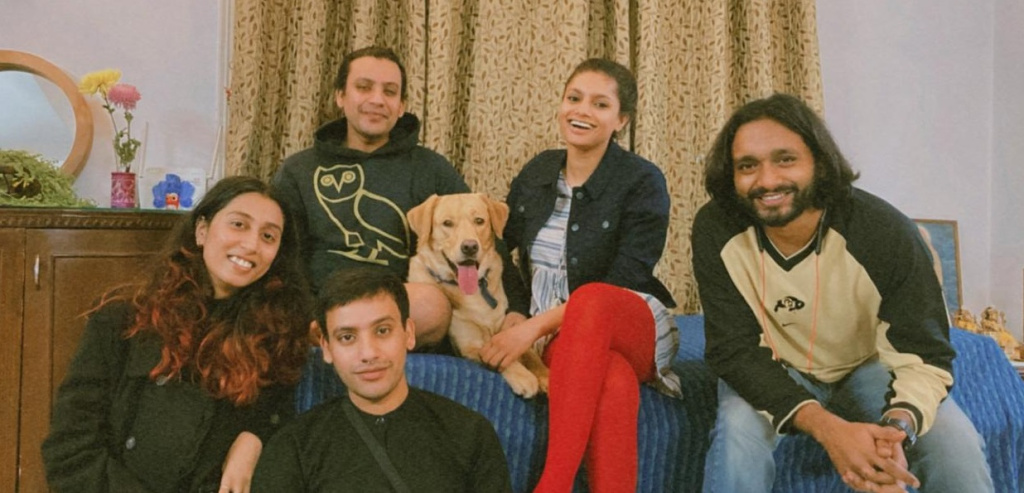30Under30 Nominee: Anushka Bhilwar

Great to hear from Significant Insights Global 30 under 30 nominee Anushka Bhilwar who is a passionate advocate for inclusive research practices and a dedicated researcher with a unique interdisciplinary background.

So, how did you get into the industry, and take us through how you got to this point?
It was the second-year of my undergraduate degree when my professor reached out to me and asked if I had ever thought about a career in research. Honestly, being that young I thought research as a job is so fulfilling that you get to read all day and write about your findings. Little did I know research somehow became a huge part of my identity. I have always been curious and working in the research industry where you learn about people, their choices – what, why and how they make their decisions fuelled me.
I started my career in Indian academia being one of the youngest researchers and participated in conducting impact analysis for the Government of India. Later I transitioned into the development sector, working with non-profit organizations and helping them digitize their work spaces using research and advisory. Now at last, I am working with Gartner as a Research Specialist in the Content Maintenance Team. I get to work closely with Global Experts in their field and assist them in showcasing their research for a wider audience by making research findings more consumable and informative.

Why should anyone consider a career in market research, data and insights?
I believe research, data and insight does not exist in silos. They are a part of every living creature. For us humans, how we identify ourselves, our choices of people around us, our houses, careers etc. are all driven by the information we have gathered, analyzed and then created insights on what to do next. A career in this field for me translates into being human and being more connected to my humane self of being curious.

For people looking to get into research my advice would be that this industry does not ask you to be extraordinary or an expert on humans, it wants you to be curious, it wants you to be human. Conducting market research is an integral part of every job role. Every role that exists requires a basic amount of research, data analysis and preparing insights from media planning, CEO, doctor or lawyer – everyone needs to get down at their feet and find information.

Career paths are rarely without challenges. Can you share an honest moment from your career when things didn’t go quite according to plan, but the lessons remain with you to this day?
Being a first generation Dalit (caste minority) woman learner from my family, getting a postgraduate degree and a job in research felt like a big achievement. From learning English to commanding this language which is not even my or my family’s first language I believe I have come a long way. I started my journey with limited English proficiency, often struggling with grammatical errors. While my reports reflected my passion for writing, the clarity of my ideas sometimes got lost.
I initially believed that acquiring new skills would be the key to advancing in my role. However, I soon realized that true growth isn’t just about accumulating knowledge; it’s about mastering your current abilities. I learned that being an effective researcher requires more than just writing well—it demands critical thinking, editing skills, and the ability to synthesize information clearly.
This realization was a turning point for me. I understood that expertise comes from consistent practice and dedication. It’s not an overnight transformation; rather, it’s a continuous process of refining your skills. This lesson remains with me today: to excel in my field, I must commit to the work, embrace the challenges, and strive to be the best at what I do.
What two things should junior researchers focus on as they progress in their careers?
As a junior researcher, I believe two things to focus on are embracing your uniqueness and maintaining consistency in your work.
First, focus on what you bring to the table as a person. Don’t get too caught up in your educational background and which course to pursue. I hold triple majors in Psychology, Political Science, and History, which some might view as unrelated to tech and policy. However, I realized that this unique perspective was my greatest asset. I could contribute meaningfully by examining how technology impacts social behaviors and perceptions. My background allowed me to formulate methodologies that considered both social and environmental factors, enriching the research in ways that others might overlook.
Second, prioritize consistency in your work. While it’s great to think about future projects and aspirations, it’s essential to excel in your current role. Focus on honing your skills and delivering quality work consistently. This foundation will serve you well as you progress in your career and seek new opportunities.

Do you have any advice for our sector?
My advice for our sector is to avoid gatekeeping research as a career solely for those with prestigious academic backgrounds. Research is an intuitive skill that can be developed through consistent effort and dedication. It’s an industry that should be accessible to everyone, regardless of their educational history. We need to communicate how integral research is to every job role and promote the idea that diverse perspectives enrich the field. Embracing this inclusivity will foster innovation and drive meaningful progress across various sectors.

And do you have anyone who has helped your career so far that you’d like to acknowledge and say thanks or give a shout out to?
I have a lot of people to be grateful for on this journey. From my father and my grandmother supporting me, to my friends for being my pillars and my partner who have motivated me at every step in my journey.
I think to profusely thank I will start with my college professors – Dr Priyanka Jha for encouraging me to explore research as a career. To Dr Adil Zubair for being that professor, mentor and friend within whom I could confide and provide me with positive feedback.
To Dr Charru Malhotra for being my mentor and supporting me in this industry. I started my first job under her. And to Mr Atul Garg for being my supervisor and allowing me to grow, helping me explore and learn from my mistakes.
Lastly, to my current supervisor Mr Vijay Rao who has been a great support at my work. He has allowed me to embrace what it means to be a researcher with empathy at forefront.
